FHA mortgages were created by the Federal government to make owning a home more achievable for buyers with limited savings or less-than-perfect credit. Conventional mortgages, as the name suggests, are loans made by regular financial institutions, which may require more stringent buyer qualifications.
FHA and conventional loans have a lot in common. Both offer fixed or adjustable rates, 30- or 15-year terms, and flexible options for down payment. However, there are also some fundamental differences. A mortgage advisor can help you decide which type is best for you, starting with these 5 questions:
1. How High is Your Credit Score?
A conventional loan requires a minimum credit score of 620. For a standard FHA loan, most lenders require a minimum score of 580.
2. What is Your Debt-to-Income Ratio?
Your debt-to-income (DTI) ratio is easy to calculate. Add up your monthly bills, including rent, student loan, car loan and credit cards. Do not include groceries, fuel or utilities. Then divide by your gross (before tax) income. The resulting percentage is your DTI, which lenders use as a measure of risk. For a conventional loan, your DTI must be 45% or less. For an FHA loan, your DTI can be as high as 55%.
3. How Much Can You Put Down?
Technically, a conventional mortgage has a minimum down payment as low as 3%. However, in order to put just 3% down, the buyer must also purchase private mortgage insurance (PMI), and must carry PMI until payments equal 20% equity, at which point the PMI can be dropped. Moreover, a buyer starting with a more typical 20% down payment is not required to purchase PMI. With an FHA mortgage, the minimum down payment is 3.5%, but the extra expense of PMI insurance is required for the life of the mortgage. Your mortgage advisor can help you calculate which option will work out best for you.
4. How Much House Payment Can You Afford?
Your payment will include principal, interest, taxes and insurance (PITI). Principal is the monthly portion of the balance after deducting the down payment. Interest will depend on market rates at the time of your loan, as well as the rate offered by the lender for your credit rating. In general, conventional loans are higher than FHA rates, although the difference is small. Taxes on a property are available in public records, and insurance can be estimated easily. Finally, as noted above, the payment may require a PMI premium. Your mortgage advisor can help you calculate these variables to compare estimated payments for comparable conventional or FHA loans.
5. How Do You Plan to Use the Property?
FHA loans may only be used for your primary residence, and they must pass strict standards for the condition of the property. Conventional loans are much more flexible, allowing the borrower to use a property for residence, vacation, rental, or investment.
For a closer look at the pros and cons of FHA and conventional loans, talk with one of our advisors today. Visit us online at www.LendingShops.com or give us a call at (972)-458-8888.

EQUAL HOUSING LENDER NMLS# 10309
4101 McEwen Road suite 140, Dallas, Texas 75244





Write A Comment